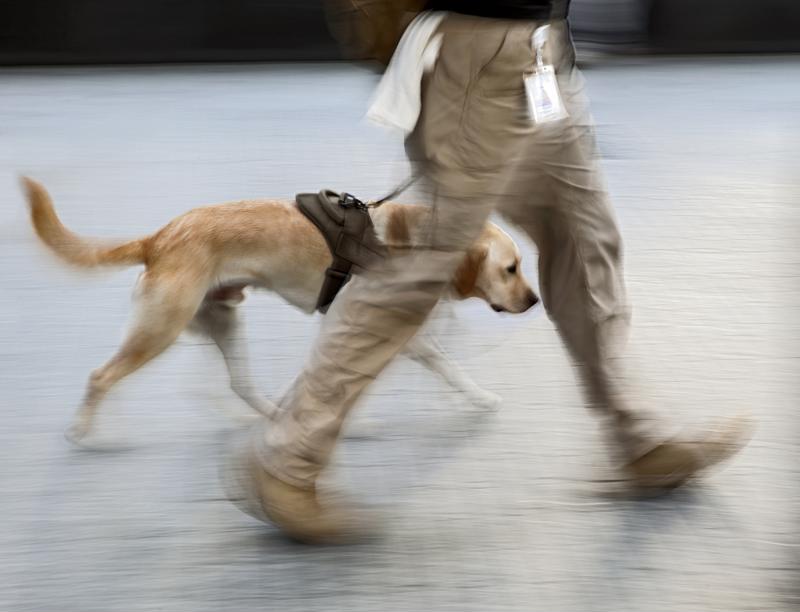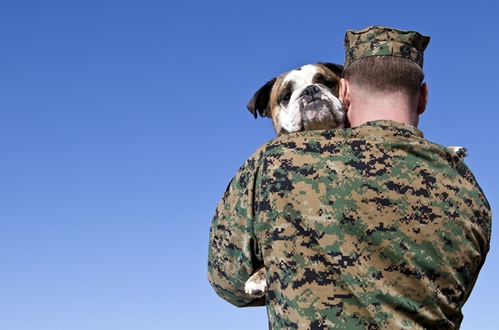Between 11 and 20 percent of the service members who participated in Operations Enduring Freedom and Iraqi Freedom suffer from post-traumatic stress disorder, according to the National Center for PTSD. These troubled service members cope with the disorder in a variety of ways. Some immerse themselves in the creative process or take their minds off painful memories by engaging in vigorous exercise. Others turn to four-legged companions for comfort.
In the months and years since service members started returning from conflicts in the Middle East, pet therapy organizations have sprung up across the country, helping combat veterans connect with service animals that offer support during the occasionally turbulent moments that can arise in life after service.
K9s For Warriors is one of these groups, Parade reported. Shari Duval founded the Ponte Vedra, Florida-based organization in March 2011 after learning that her son, a contract bomb dog handler for the Department of Defense, suffered from PTSD – the result of two tours in Iraq.
In the years since, K9s For Warriors has provided approximately 263 service dogs to veterans in need, including former Air Force officer LaWanna Viers. She, like many of her fellow service members, returned home from Iraq with PTSD. After months of anxiety and insomnia, Viers reached out to K9s For Warriors and was presented with a female bulldog-boxer mix named Corey. The effect was immediate.
"The day that I got [Corey], I felt this sense of calm come over me," Viers recalled in an interview with Parade. "When I saw her eyes, I knew everything was going to be OK."
Now, the 25-year Air Force veteran can enjoy carefree moments with her husband and children and navigate large crowds and tense situations, knowing Corey is prepared to act should she show signs of anxiety.
"She can tell when I am anxious or having a panic attack. She'll pull me to a quiet place and then block me from people," Viers explained.

Of course, canines like Corey aren't naturally equipped to shepherd their owners away from despair. These animals undergo extensive training and learn to pinpoint the emotional and physical cues that signal anxiety in humans. The trainers at K9s For Warriors work with veterans and their service animals for months to help cultivate deep bonds between them.
The organization hosts five participants at time, leading them and their assigned dogs through 120 hours of tailored training. Approximately 90 percent of the veterans who graduate the program return regularly to recertify their animals and brush up on new handling techniques.
At K9s For Warriors, most of the assigned canines are rescues. In fact, the group has saved more than 300 dogs since its launch in 2011.
Despite the obvious benefits of service dogs, most therapists believe they do little to treat individuals with PTSD, The New York Times reported. Most advise sufferers to continue therapy even after obtaining these animals.
Still, the Veterans Administration recommends them, especially for former service members who may need physical assistance. And, as long as veterans like Viers continue to see results, it will likely continue to do so.

